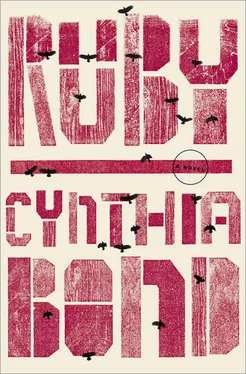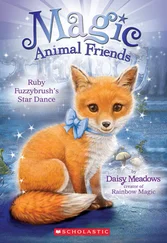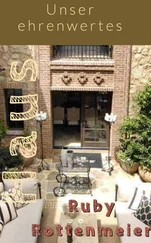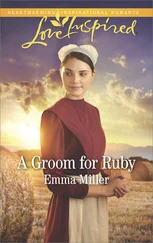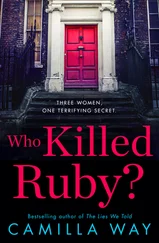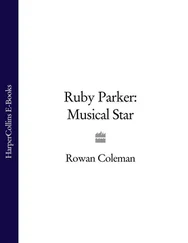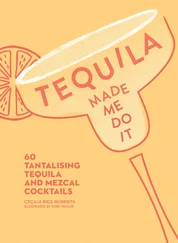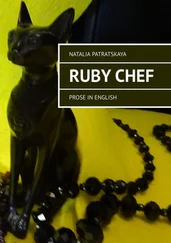Things went on like that for another two years, Friday nights coming and going like swallowing a briar patch dipped in chocolate. Until his mama came up pregnant. When he asked about sin, she threw back her head, mouth wide, teeth white. She laughed until she choked on her spit, then coughed and laughed some more. She rolled from him and a chuckle burped from her throat. What she told him next was worse than all the rest put together. Her eyes glazed, she leveled them at him. “You a worse halfwit than your daddy. He weren’t much, but at least he was a man. You ain’t nothing but a woman’s whore, and give her money besides. You leaving come morning and Ernest Meagers moving in. He think it’s his and you ain’t standing around moon-eyed to tell him no different.”
Face wooden, Omar said, “But I looks after things round here.”
She was lying down limp when she grinned. “You ain’t nothing but a tadpole wriggling in the mud, ’s time fo’ a bullfrog.”
Some people said it was the chain gang that had escaped from Tallahassee that had done it. Most thought it was Gibbs’s poor relations or the Klux, but the way they found Sofia Jennings cut up like a prize hog was the shame of Jessup County. Both White and Black talked about it for years. White women from the Ladies Sugar Beet Society brought Omar and his siblings cake and round bread for weeks, mashed potatoes over cauliflower and beets with crinkly onions. He took it and pained his face according to their needs. He took their money too when it was offered and still set his sisters to work. He took their money come Friday and from the middle girl, Betty, who’d just turned ten, he took more than that in the outhouse while the rest of his siblings slept.
When he left Jessup three years later he had $400.45 rolled tight in his knapsack, every nickel in the family bank.
Omar also left with his mama’s pallet folded in his knapsack, brown with years of sweat, and a few remaining bloodstains his able sister had not been able to wash clean. He left with the ax handle he’d buried in the thick of the forest the night his mama had forced him to kill her. And the same pack of matches that had proved so useful some two years before, when Omar had found his daddy passed out from drink, tied him to a mule and dragged him two whole miles to the Gibbs plantation, and set his past aflame.
As he walked away he could almost hear them screaming just under the loom, their souls blocked from rising by the lodestone he placed over each of their graves and the cold ice terror he’d frozen in their eyes at the moment of their death. Omar learned one thing for certain. Not all souls rose.
An entire week had passed after Junie Rankin was laid to rest, but the porch at P & K still chewed on the fat of the funeral. How Sister Celia had taken the high road and how Ephram Jennings had vomited all over Chauncy Rankin’s new suit.
Plenty had made their way out to Bell land to inspect the sinful goings on. Each acting as if they were wandering that way on some errand or another, after which most had come knocking on Celia’s door reporting, as she had requested, on the things they had seen.
Verde Rankin came to Ruby’s door for her mother’s dishes and had seen Ephram breaking the hard sod in the yard with a hoe, seeds at the ready, while Ruby was sitting next to that chinaberry tree talking to the wind.
Cleary had seen Ruby and Ephram walking around hand in hand down by Marion Lake while Moss Renfolk had caught sight of Ephram nailing fresh lumber from the mill onto Ruby’s roof.
Minnie Hardy, K.O.’s cousin visiting from Beaumont, got in on the act and said while she was taking the bus from Newton she had spied Ephram holding red roses, no less, tucked under his arm with a big white bow. She had also peeked and seen that he was carrying two bags full of groceries with things that looked like Vienna sausages and two big rib-eye steaks.
Righteous Polk and her cousin Grace reported that Ruby’s clothes, even her drawers, were out on the clothesline when they stopped by to drop off pound cake and, Lord , if they hadn’t seen Ruby walking around in clean clothes, with her hair braided and put up, looking for the life of her like a normal girl.
The worst of it, Supra gave over with a snide grin, was how they were keeping house like a Christian married couple, but how her son Percy had told her he’d gone by late one night and still seen Ruby cooing and petting little piles of dirt by the chinaberry tree.
Tressie Renfolk concluded that Ruby Bell looked good enough, but crazy still hung around her eyelashes.

IN SPITE of all of this, Ruby and Ephram kept right on living. While Ruby hid the sweet ache Ephram’s presence gave her, she would turn over a small smile or a gentle look now and again.
That first night in the rain, with the door fresh and scrubbed, with her standing, confused, not knowing what to do, Ephram had told her, “Ruby you got to know I’m marriage bound, and I aim to treat you like the lady you is until that day offer up its glory.”
She had to give a bored shrug to keep him from seeing the gratitude in her eyes.
Mornings gave way to afternoons with Ruby drinking coffee and eating the scrambled eggs and toast with raspberry jam Ephram cooked for her, then watching him as he walked off to the Red Bus to go to the Piggly Wiggly in Newton. Each day Ruby stopped to look at the world the man had made for her. Fruit sat in a bowl on the table. There were clean plates with tiny blue flowers on them, and matching blue placemats, napkins and true-life silverware.
He brought her the Beaumont Bugle and she stepped back into time and learned about: the new speed limit, Nixon and a hotel called Watergate. He brought a transistor radio and she heard a woman named Roberta Flack sing “Killing Me Softly” on an FM station. She had cried hard into her sleeve and was grateful that Ephram had not been nearby to see it.
Every morning Ruby did the unthinkable, made up her own bed, then walked into the spinning day to tend to her children. They glowed, the sun gleaming on their faces, their bodies waving in the light, making rainbows that flashed on the earth. They often hopped upon her and followed her into the pristine house, tugging with hundreds of hands on her clothing. They hid under the bed and under her skirt; in the beams of the ceiling and inside the sink. They drifted and skipped and jumped Mary Mack with an invisible rope. They loved the home almost as much as the chinaberry and Ruby played ring-around-a-rosy with them late into the afternoon.
While they napped Ruby would wander into the thick of the piney woods and let nature rush through her. Tuesday she washed against the sand of Marion Lake and felt silver fish swimming in her belly. Wednesday and Thursday she waved as a field of bluebells, letting the bees tickle her fingers and toes. Friday through Sunday were for the earth — the black gumbo clay with its pill bugs and wriggling worms.
When she made it home she would wait for Ephram. When he arrived she would quickly lean down like she was wiping away something on the stair, or picking at the hem on her dress, then she would step into the house with only a tired look.
Each day he brought her gifts. She barely nodded thanks when he brought her roses on Tuesday. On Wednesday, she took the small bottle of perfume from Avon but accidentally knocked it into the woodbin, where it cracked — the smell filling the house with sickly gardenia sweet. She drank his chicory coffee with rich cream because she loved it so, and held his smiles because they tickled something in her chest. On Thursday he brought her glazed doughnut twists for Friday breakfast. She felt saliva arc from her mouth before she could devour five of them.
Читать дальше
